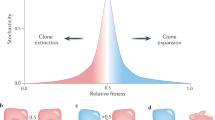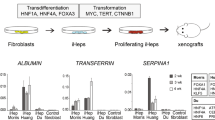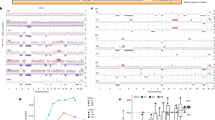Abstract
Cancer cells should be seen not as exclusively a problem in cell proliferation, but rather as a problem combining the processes of proliferation and differentiation, hence the phrase introduced in 1968: "oncogeny is blocked ontogeny". Cancer tissues resemble foetal tissues in many ways but they differ from foetal tissue in being unable to "recapitulate the total programme leading to an orchestrated collection of organism-serving cells" that are programmed "to make the organ as adaptive as possible to the range of environmental variations in which it evolved". Citing the "Osgood Principle" from the 1950's, recent supporting evidence was described, in which the most mature differentiated cells exert positive and negative feedback upon the proliferation of their progenitor stem cells. Advanced examples in the haemopoietic series were drawn from the work of Sachs, Metcalf, Till and McCulloch, and Kurland and Moore. The blocked ontogeny hypothesis was further elaborated in the concept of "partially-blocked ontogeny", which is intended to describe a situation in which highly differentiated slowly growing tumours contain some cells which have left the proliferating pool to differentiate along the normal pathway, but are blocked somewhere short of the final organism-serving state, in harmony with earlier suggestions by Osgood, by Pierce, and by Sachs.
This is a preview of subscription content, access via your institution
Access options
Subscribe to this journal
Receive 24 print issues and online access
$259.00 per year
only $10.79 per issue
Buy this article
- Purchase on Springer Link
- Instant access to full article PDF
Prices may be subject to local taxes which are calculated during checkout
Similar content being viewed by others
Rights and permissions
About this article
Cite this article
Potter, V. Phenotypic diversity in experimental hepatomas: the concept of partially blocked ontogeny. The 10th Walter Hubert Lecture. Br J Cancer 38, 1–23 (1978). https://doi.org/10.1038/bjc.1978.159
Issue Date:
DOI: https://doi.org/10.1038/bjc.1978.159
This article is cited by
-
What roles do colon stem cells and gap junctions play in the left and right location of origin of colorectal cancers?
Journal of Cell Communication and Signaling (2017)
-
Towards a systemic paradigm in carcinogenesis: linking epigenetics and genetics
Molecular Biology Reports (2015)
-
Evolution of energy metabolism, stem cells and cancer stem cells: how the Warburg and Barker hypothesis might be linked
BMC Proceedings (2013)
-
Neonatal tumours
Pediatric Surgery International (2013)
-
The gap junction as a “Biological Rosetta Stone”: implications of evolution, stem cells to homeostatic regulation of health and disease in the Barker hypothesis
Journal of Cell Communication and Signaling (2011)



